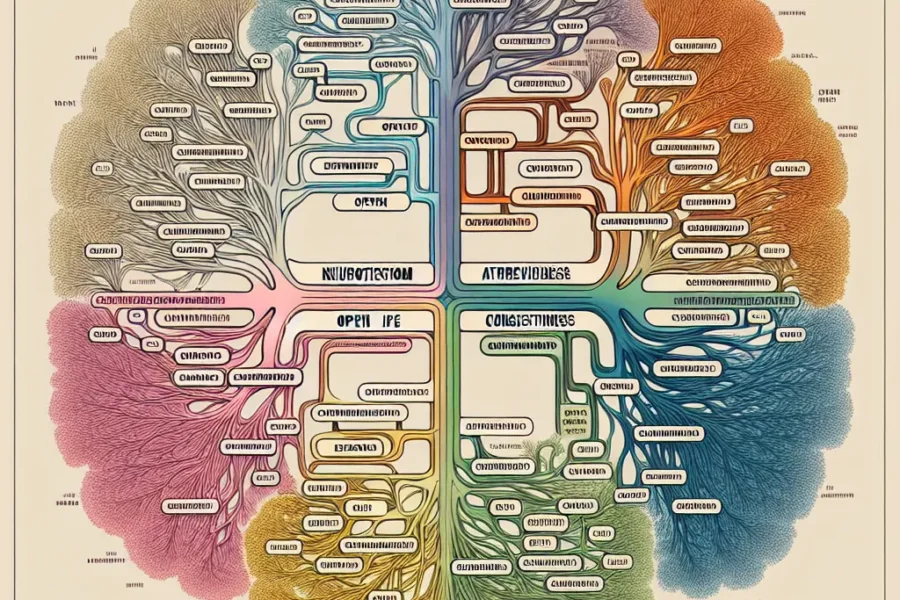The MMPI (Minnesota Multiphasic Personality Inventory) is widely recognized as one of the most significant and widely used tools for psychological assessment. Created in the late 1930s by psychologist Starke R. Hathaway and psychiatrist J.C. McKinley at the University of Minnesota, the MMPI has evolved over the years into its current version, the MMPI-2, and an adolescent variant known as the MMPI-A. It is utilized by clinicians and researchers to diagnose mental disorders and evaluate personality structure.
The MMPI is a comprehensive instrument that aids in the identification of personality structures and psychopathologies. It consists of a series of statements to which the individual responds with “True” or “False”. The original form of the tool had 550 statements, which have now been refined and reduced to 567 in the updated MMPI-2. The inventory assesses a broad range of psychological conditions and offers a detailed look at an individual’s emotional, thought, and interpersonal processes.
One of the main advantages of the MMPI is its objectivity. The tool is standardized, which means that it is administered and scored in a consistent manner. This standardization provides reliability and validity to the assessments and allows for the comparison of results across different individuals. It also makes the MMPI an impartial diagnostic tool that does not depend on the subjective judgment of the clinician.
The MMPI is composed of a series of scales that measure various psychological states and conditions. These include the ten standard clinical scales which assess symptoms of common psychopathologies such as depression, hysteria, paranoia, psychopathic deviance, masculinity-femininity, and schizophrenia. Additionally, the MMPI includes validity scales designed to detect response patterns that might indicate an unreliable test-taking attitude, such as faking good or bad, inconsistency, or non-responding.
One of the remarkable features of the MMPI is its use in a wide range of settings. Beyond helping psychologists in clinical settings to make diagnoses and treatment plans, this versatile psychological assessment tool is also used in legal cases, employment screenings, medical settings, and educational environments. For example, it can play a critical role in forensic evaluations to assess criminal defendants’ competency to stand trial and in custody disputes to understand the personality profiles of those involved.
Conducting an accurate psychological assessment with the MMPI requires a skilled and trained clinician to administer the test and interpret the results. The interpretation is not straightforward and must account for the complex interactions between different scales. Clinicians must be careful to consider the context of the individual’s life, personal history, and other factors when considering the results of the MMPI.
The MMPI is not just a static tool. It has seen revisions and updates that accommodate the changes in our understanding of psychology and cultural shifts in society. The updated versions, such as the MMPI-2 and the MMPI-A (for adolescents), take into consideration differences in language use, societal norms, and expectations that may have changed since the inventory was first developed.
Moreover, the MMPI is valuable for its ability to inform treatment strategies. It goes beyond diagnostics to help clinicians develop a thorough understanding of their clients which is critical for effective treatment planning. The detailed profiles obtained from the MMPI can guide decisions about therapy modality, focus, and interventions.
Despite its numerous applications, the MMPI does have limitations. The test takes a significant amount of time to complete and can be exhaustive for some individuals. There are also concerns about cultural bias, as the standardized nature of the tool can make assumptions about normalcy that may not account for cultural diversity. It is essential that the MMPI is used as a supplemental tool alongside clinical judgment and other forms of assessment.
To improve the search engine optimization (SEO) of content related to the MMPI, it is essential to include key phrases that potential readers might use to search for information on the topic. Terms like “MMPI”, “psychological assessment”, “mental health evaluation”, “personality testing”, and “clinical scales” should be included naturally within the article. It is also helpful to address common questions and provide in-depth information that engages readers and holds their attention.
Educational resources and continued research on psychological assessments will likely expand the utility and accuracy of the MMPI. It remains an evolving tool, with ongoing studies looking to refine and improve its scales and uses. As our understanding of psychology deepens and diversifies, so too will the capabilities and applications of the MMPI.
The MMPI is an invaluable tool in psychological assessment and has significantly influenced the field of psychology. Its ability to provide objective and reliable data on an individual’s psychological states makes it a cornerstone for psychological evaluation. Despite its limitations and ongoing evolution, the MMPI continues to be a critical resource for mental health professionals seeking to help their clients achieve greater self-understanding and mental well-being. Its enduring presence in psychological assessment is a testament to its utility and effectiveness in various settings and for a wide array of psychological concerns.



Leave a Comment